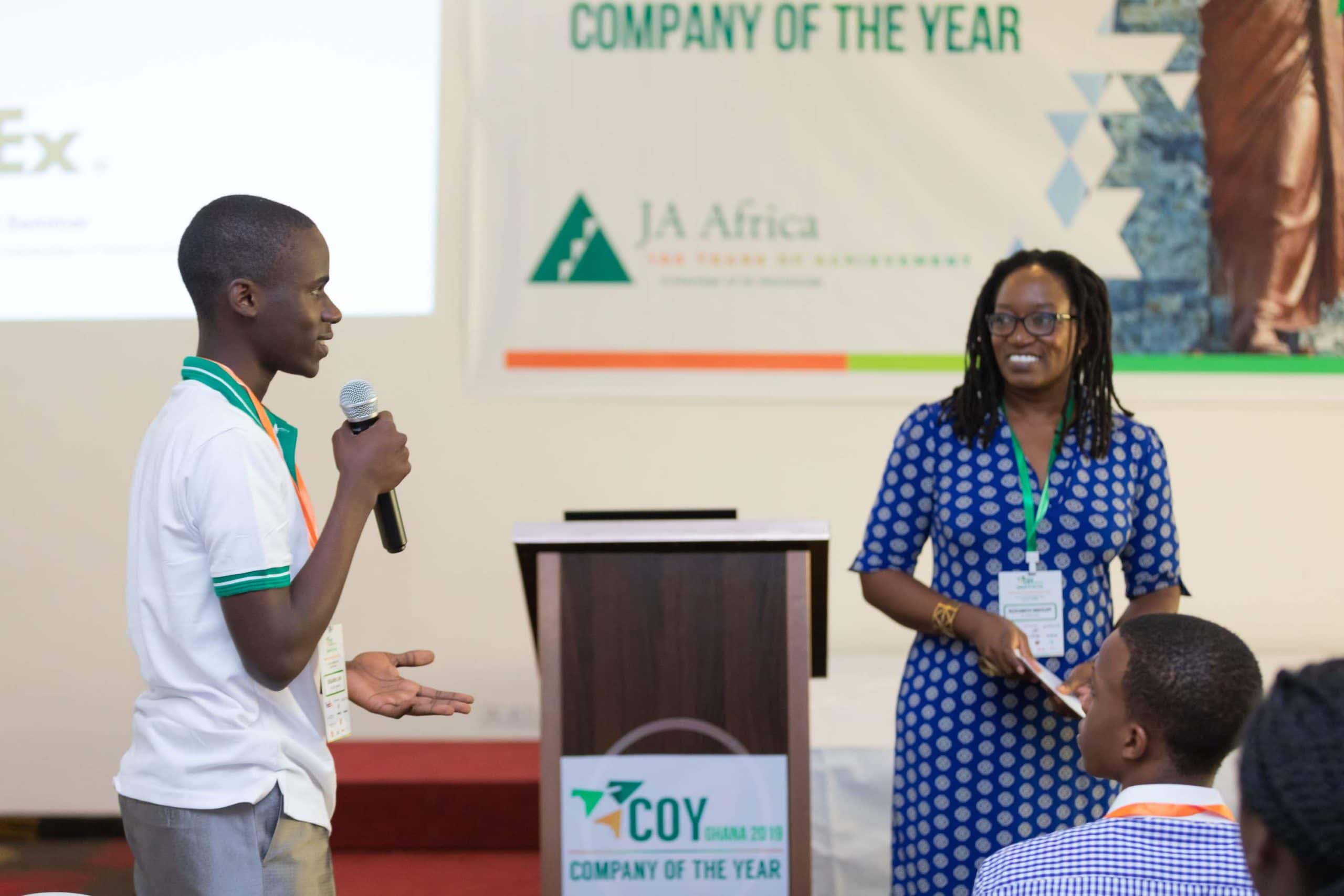Elizabeth Elango Bintliff, the CEO of Junior Achievement Africa, on why quality education should be available and accessible at scale and what needs to change to fill the gaps in teaching.
JA Africa’s mission is bridging the gap between classroom education and the world of work for young Africans, reaching 250,000 students in 15 countries in Africa each year. It’s CEO, Elizabeth Elango Bintliff, tells us more about building the workforce of the future:
You’ve been working in the youth empowerment sector for a long time. What do you see as the challenges?
I think three things are critical for young Africans to be empowered: education, experience and exposure. Access to the internet is ‘solving’ for exposure, though to a limited extent. But we need to solve for experience and education. Of the three, education is key and education tends to be the domain of the government. Elite private schools are great, but often cost-prohibitive for the average student. We need to make quality education available and accessible at scale.
Conversely, what are the opportunities?
Loading...
The digital and online space are great opportunities for Africa. We are seeing this now in the time of Covid-19 more than ever. Yes, access to computers is a challenge, but even more challenging is access to data. There is no shortage of online resources that teach entrepreneurial mindsets to young people. I think what governments need to be working towards, more than even buying and putting computers in schools, is making offline access to these resources possible. If we make them affordable to access, the private sector would be more inclined to solve the hardware needs.
“Classrooms are still configured for desks to face the teacher who is the sole holder of knowledge, whereas the world of work operates on round tables and collaborative thinking. Small changes like that matter.”
How do we give young people in Africa greater access to these opportunities?
We need to overhaul the way we are teaching. We need not only change how teachers are trained but what they are teaching students. In many countries, the curricula are antiquated. But the approach to teaching is even more so. Rote learning; providing information to children to memorize and regurgitate is still the dominant approach. It gives students little space to think for themselves. Classrooms are still configured for desks to face the teacher who is the sole holder of knowledge, whereas the world of work operates on round tables and collaborative thinking. Small changes like that matter.
What is the role of government and the private sector?
The role of government is central to success in changing education. Government has the ability to make change happen at scale. But African governments have to make these changes not just at policy level but also in implementation. We know that governments don’t have the resources to do so, but at least they can coordinate the efforts of the private sector. The private sector is going to have the greatest need for skilled labor, and there is increasing willingness to make these investments in education, but the effort is fragmented. It needs coordination.
Who are the other stakeholders and what can they contribute?
Non-profit organizations like ours are working hard to fill the gaps in education. But those gaps are big and growing and the scale is limited. NGOs can develop and test hypotheses about doing things in new ways. But governments have to adopt and scale them. JA Africa is currently undertaking a continent-wide youth employability survey, along with global consultancy firm Oliver Wyman, based out of Johannesburg. The findings of that survey will be invaluable to the private sector and policy-makers.
In education, parents are often the most critical stakeholders. Parents have to embrace new pedagogies, even if they are unfamiliar to them. Parents fear entrepreneurship because it is uncertain. But nothing is certain. Large multinational companies are laying off their staff because of Covid-19. So young entrepreneurs [should be equipped to] be better off in times of uncertainty. Africa becoming the largest workforce in the world is a huge opportunity if young Africans are skilled enough to take advantage of it.
Loading...
